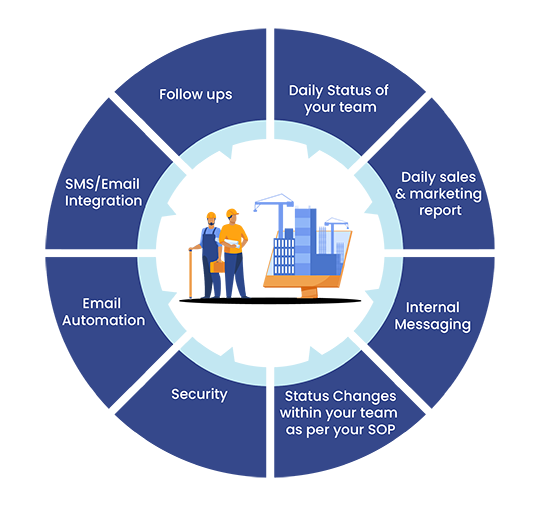Builder CRM
It's a collection of web tools that assist businesses keep track of potential new consumers and strengthen their existing client connections. Customers who are happy are more likely to do business with you, as we all know. As a builder, you're well aware that there's more to construction than meets the eye. You may be an expert on the construction side of things, but you also understand the importance of the human element. You're not only constructing structures; you're also constructing relationships.
A customer relationship management system allows you to move away from enormous volumes of paper and inconsistent, redundant, and conflicting data and records and toward a quick and efficient streamlined technique of keeping track of current and future clients. A CRM provides you with the answers to the following basic questions:
-
What is the total number of customers I have?
-
When was the last time I spoke with my client, and what did we discuss?
-
In the previous quarter, how many customers did I lose or gain?
-
How much money did I make last month?
-
Who was the most successful at closing deals?
CRM also simplifies data entry and assures that data in your system is current and accurate, ensuring that you're always working with the most up-to-date data.
By keeping track of all different touchpoints, such as websites, social media, phone calls, and more, a CRM connects you to your customers and prospects. It also pulls your staff closer together by making it easier for them to cooperate and share information.

Scope of Builder's CRM
-
Follow ups
-
Daily Status of your team
-
Daily sales and marketing report
-
Internal Messaging
-
Status Changes within your team as per your SOP
-
Security
-
Email Automation
-
SMS/Email Integration